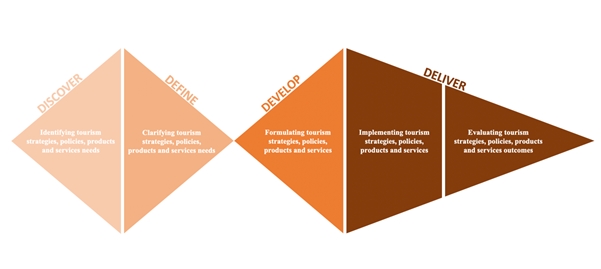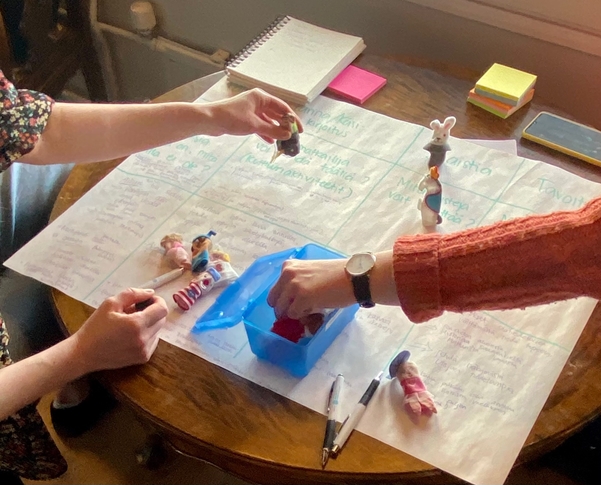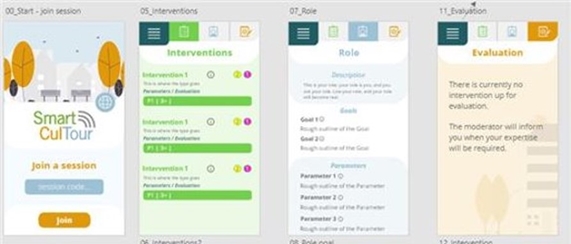Providing policymakers and practitioners with a Toolkit for cultural tourism change in Europe
The WP7 of SmartCulTour is specifically designed to engage with diverse stakeholders through a participatory approach using of a set of service design and arts-based tools/methods. The aim is to improve inclusiveness and resilience for cultural tourism change in Europe. There are four tasks under the WP7:
- Task 7.1 Co-design workshops with cultural tourism stakeholders
- Task 7.2 SmartCulTour Game
- Task 7.3 SmartCulTour Toolkit for cultural tourism policy development
- Task 7.4 Strategic roadmap for cultural tourism change
At the current stage of the project, the SmartCulTour partners are focusing on Task 7.1, which aims to assist the living labs (LLs) by suggesting, testing and facilitating the use of a set of tools and methods that can potentially help cultural tourism policy development. To achieve this aim, there are two main objectives:
- Co-designing a menu that utilises a set of service design and art-based tools/methods for cultural tourism stakeholder consultation and engagement, and thus potentially influencing the policy development of cultural tourism.
- Carrying out a series of participatory workshops in the LLs with a wide range of local stakeholders. The workshops will implement and further develop the menu using a bottom-up approach.

Figure 1 The double-diamond model in the SmartCulTour living lab context
Task 7.1 lies in the first part of the double-diamond, that is, identifying and clarifying the needs of each LL (see Figure 1). Therefore, the set of tools/methods that the SmartCulTour partners are developing will contribute to the first diamond, and the focus is placed on empathy building and empathic engagement. Taking into consideration the impact of the COVID-19 pandemic, the set of tools/methods will support the use in both physical and virtual environments. More importantly, the LLs will be engaged in co-designing the set of tools/methods in order to ensure that the end results meet their diverse needs and serve as a menu for the local stakeholders to choose. In most of the LLs, experiments have been done on how to do this in a participative way (see Figure 2), especially in relation to stakeholder engagement but also in identifying the qualities they can bring to the table as experts on (aspects of) their destination, but also the expertise WP7 specialists should bring. The menu is expected to be available as D7.1 on the SmartCulTour website by August 2021. It will serve as a living document, constantly evolving to keep pace with the LLs’ needs throughout the lifecycle of the project.

Figure 2 Engaging participants using service design tools and methods in the Utsjoki living lab
For Task 7.2 the first game prototypes have been tested. In game development, getting the aims and rules right are crucial to make a serious game attractive but also to make sure the discussion is on the topic we need. In the game, players will take on different roles in developing cultural tourism in a destination by exploring several development scenarios together from a multitude of stakeholder viewpoints. We expect to have it ready on schedule and look forward to playing it! Figure 3 presents a recent prototype of the game.

Figure 3 The recent SmartCulTour game prototype.
Task 7.3 and 7.4 in many ways are a follow up to 7.1, WP3, 4 &5 and will evolve in the next 6 months to a balanced set of tools need for cultural tourism policy development. Obviously, the LLs are excellent playgrounds for experiments in how to use and combine the tools developed in (and outside) SmartCulTour.

